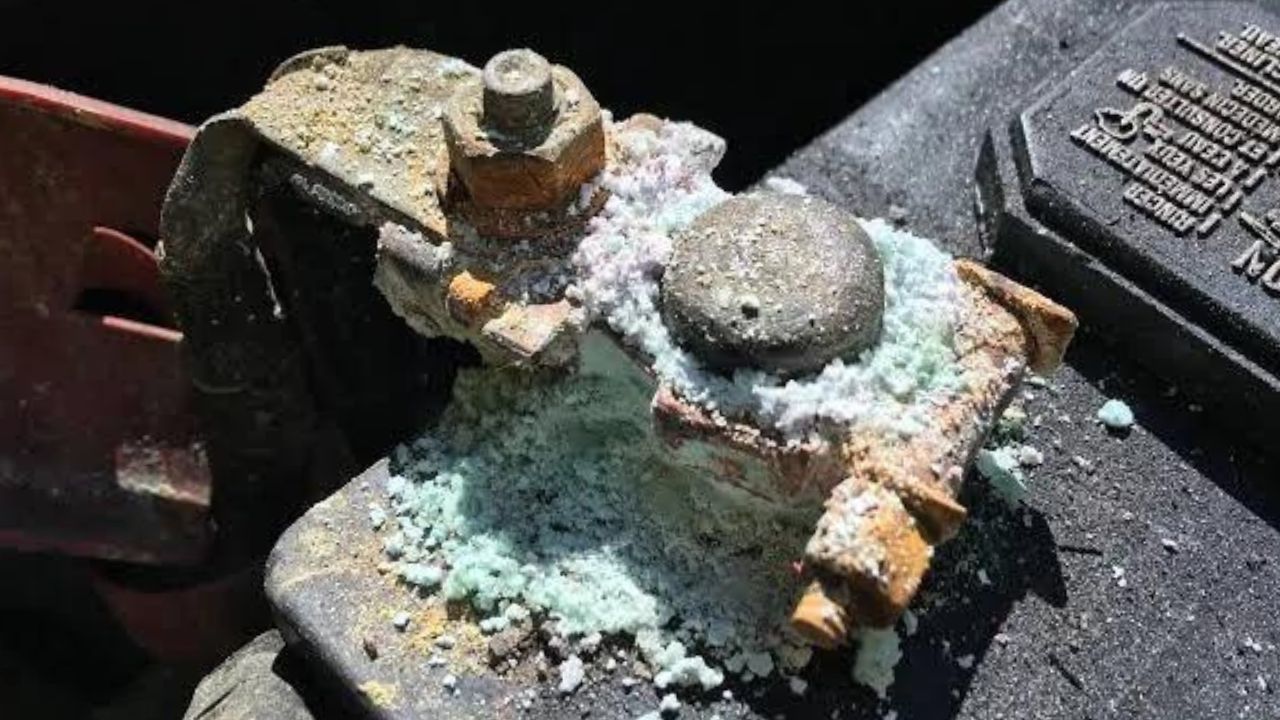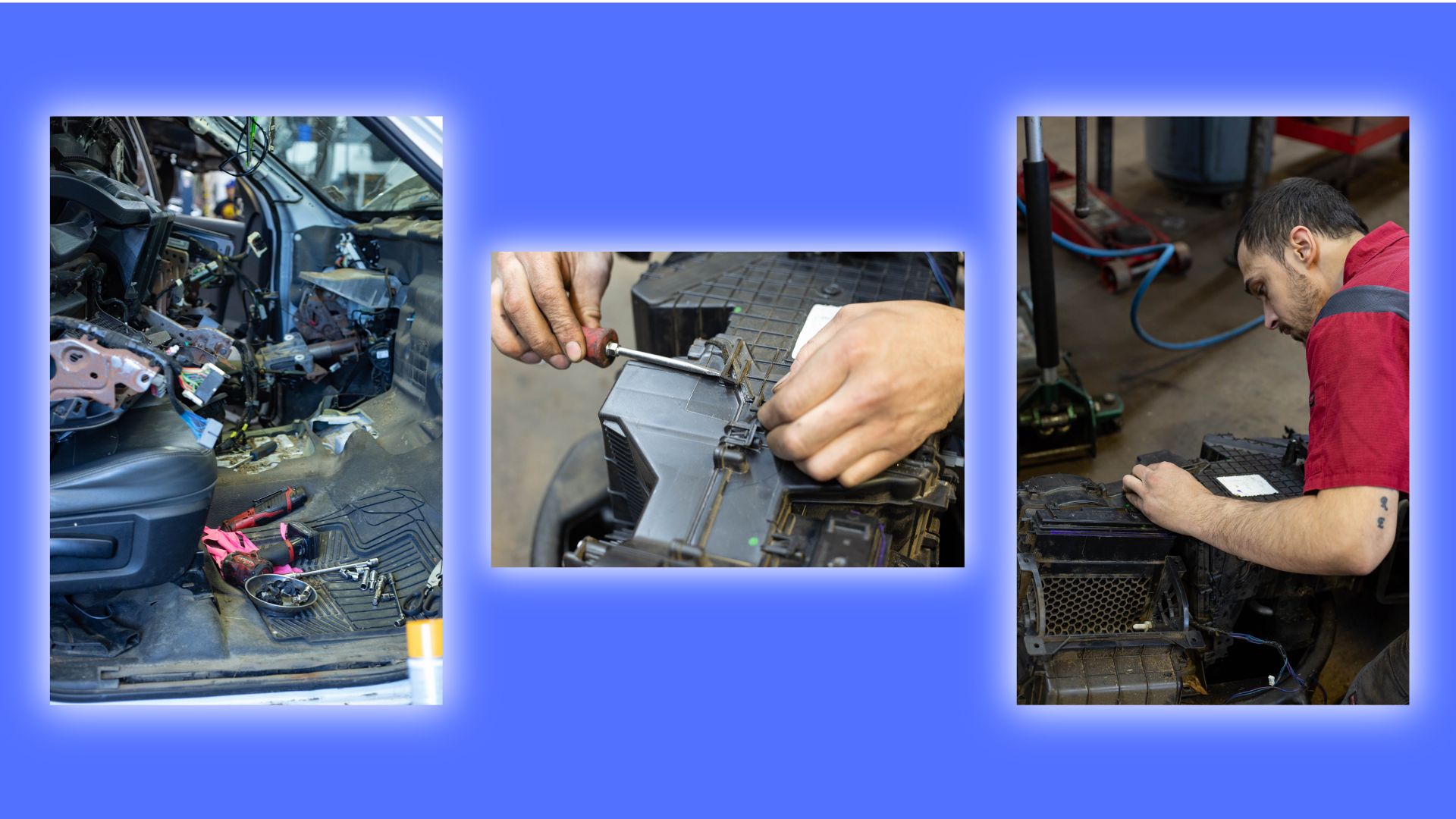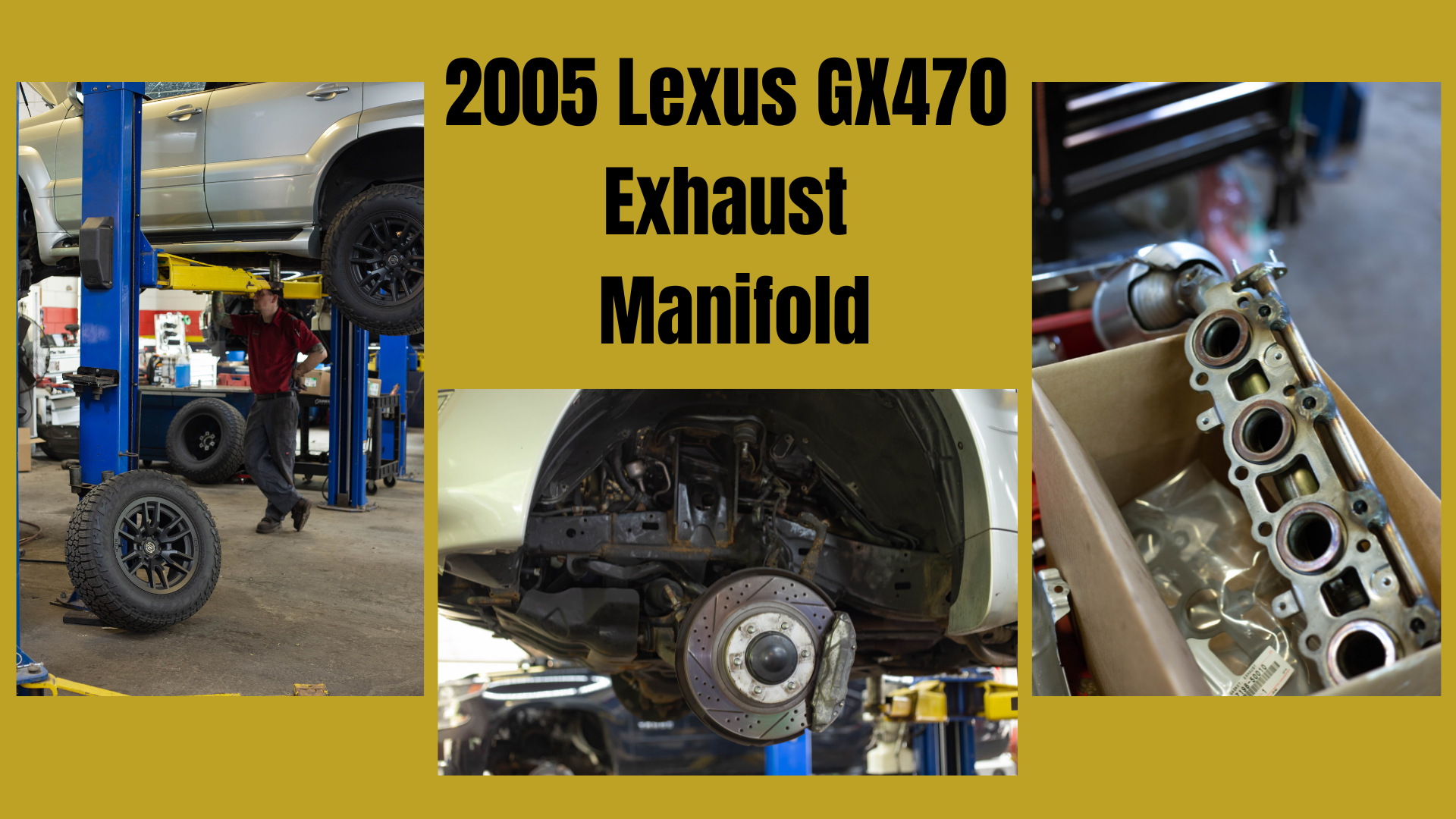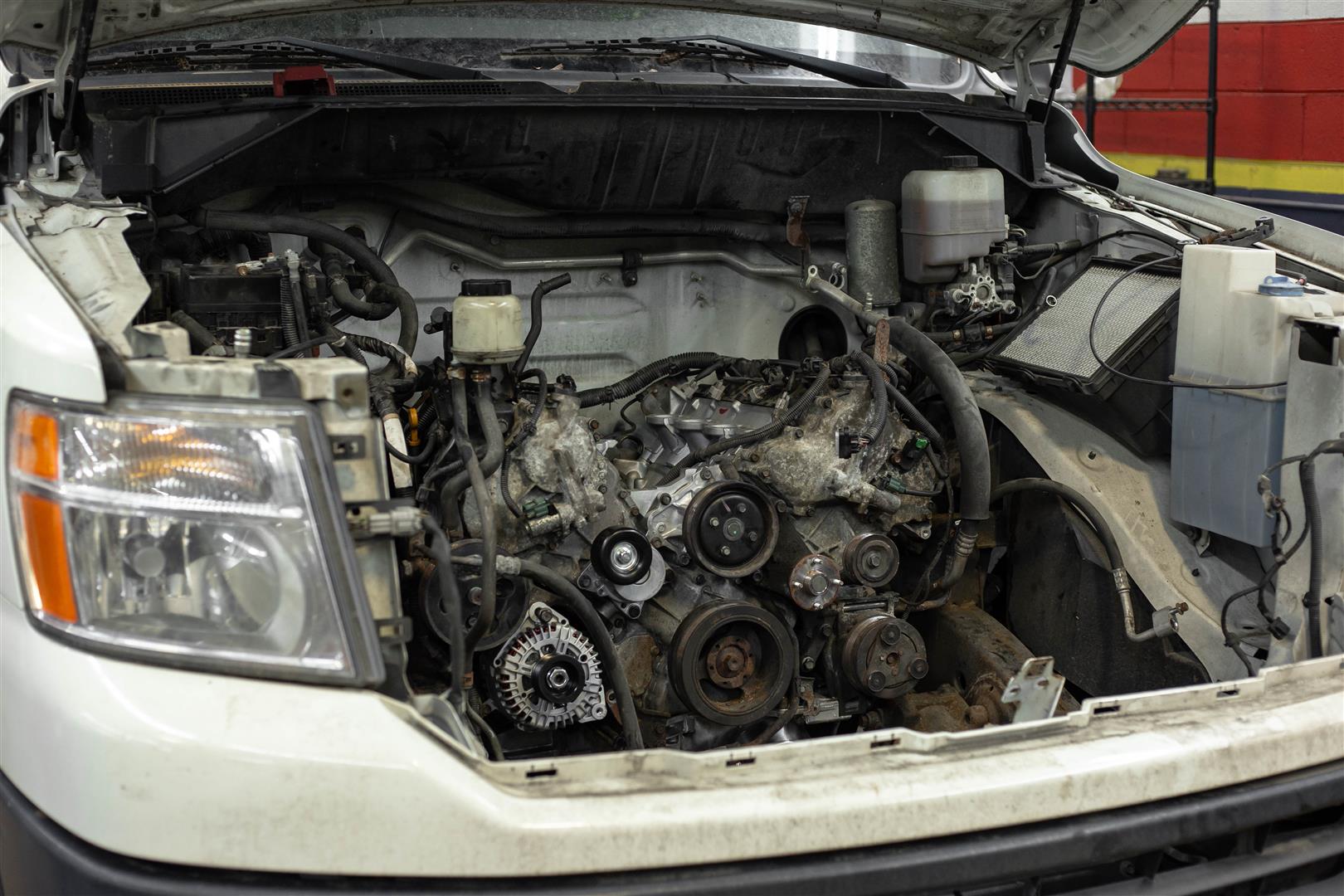Posted on 1/3/2025

Rust is one of those things everybody knows of and has seen, but nobody likes. It is a car owner’s, and many others, worst enemy. Not only does it hurt the aesthetic appeal of your vehicle, but it can also lead to serious structural damage that is unsafe and can be costly to repair. Vehicles in the northeast and many other places are unfortunately plagued by rust usually only a few years after rolling off of the showroom floor, making owners question what preventative steps they can take to avoid this plague and keep their vehicles from rotting away as time passes. While keeping rust at bay can be tricky, there are steps you can take to slow the oxidation process down and prolong the life of the materials that hold your vehicle together. Ready for more? Rust is the product of a chemical reaction that occurs when iron in various kinds of metal is exposed to water and oxygen. The process of this reaction taking place is called oxidation, and it creates iron oxide, mo ... read more
Posted on 9/4/2024

Vehicle Health Checks, Our Way In today’s fast-paced world, our vehicles are more than just a means of transportation—they’re crucial to our daily lives. They enable us to commute to work, run errands, and embark on adventures. More than that, they allow us to create great memories, learn new things, and for some of us car guys and gals, just their presence brings us pride and joy. Given their importance, ensuring that your car is in good working condition is not just a matter of convenience, it is also a matter of safety and well-being. With newer cars getting more and more expensive, we understand the importance of keeping your car on the road in running and driving condition, ready to take on your next challenge with you. Regularly getting your car looked over by a professional mechanic is a key aspect of responsible vehicle ownership. At Automotive Magi ... read more
Posted on 7/10/2024

Are you a proud owner of a GM vehicle equipped with the 2.4 liter Ecotec motor? Or perhaps you're considering purchasing one? While this engine has gained popularity for its fuel efficiency and performance in various models, it's not without its share of issues that owners and potential buyers should be aware of. In this blog post, we'll get into some of the common problems associated with the Chevy 2.4 liter Ecotec motor, providing insights to help you make informed decisions. This motor was developed by General Motors with efficiency and fuel economy in mind for daily driving applications. It is an inline 4 cylinder that produces 164 - 182 hp and about 172 lb-ft of torque. It features direct injection, dual overhead cams, and variable valve timing. It can be found in cars such as the Chevrolet Captiva, Chevrolet Equinox, GMC Terrain, Buick Verano (CX/CXL), and B ... read more
Posted on 6/12/2024

The Silent Heroes: Understanding the Importance of Catalytic Converters In the world of cars and environmental consciousness, there's a silent hero that’s often overlooked the catalytic converter. You may have heard about this fancy part of the exhaust system that hides under the car, waiting to play its part when you turn your car on. Its role in reducing harmful emissions from vehicles and preserving the air we breathe is crucial. Let's dive into this vital component and explore why it deserves our attention. What is a Catalytic Converter? Remember when masks were required for any travel during the COVID-19 outbreak? The purpose was to stop the spread of the virus or “pollutant” by filtering the air you breathe out through a mask. You can think of a catalytic converter in the same sense. It’s a device installed in your vehicle's exhaust system that converts harmful pollutants created by the combustion process into less harmful emissions before ... read more
Posted on 3/27/2024

Understanding Fuel Octanes: How They Impact Your Car's Performance When you pull up to the gas station, you're often faced with a choice: regular, mid-grade, or premium fuel. While the price difference between these options may catch your eye, what's more important is understanding the significance of their octane ratings and how they can affect your vehicle's performance. Let's dive into the world of fuel octane and unravel the mystery behind this crucial aspect of engine optimization ... read more
Posted on 3/18/2024

Maintaining your car battery is an essential aspect of keeping your vehicle in good working order. At Magic Lube & Rubber, we believe that your battery is the lifeline of your car and requires regular maintenance to keep it functioning at its best. Let's take a closer look at why your battery matters and what you can do to ensure it stays healthy. Your Battery's Role in Your Vehicle Your battery is responsible for providing the initial energy required to start your car's engine. Without it, your vehicle won't move an inch. Additionally, your battery helps regulate voltage, which is essential for preventing damage to sensitive electronic components. From headlights to power windows, your battery ensures that all electrical systems in your car function correctly. How Long Does a Battery Last? On average, a car battery lasts between three to five years. However, this can vary based on several factors, including driving habits, weat ... read more
Posted on 3/5/2024

Have you ever been burdened with a dead battery in your vehicle? Most of us have experienced the pain of going to start our cars and getting nothing but a rapid-paced click, or nothing at all. A dead battery can happen at any time, and having the right knowledge and equipment is essential to get back on the road in an emergency. Jump-starting a car is a skill that every driver should know in case they’re ever stuck with a dead battery, so in this blog, we’ll be diving into How to Jump-start Your Car. Why do car batteries die? Car batteries have a lifespan in which they will work as intended, typically four to seven years. After that, they’ll start to lose their ability to hold a charge. A car battery will also lose its charge if something draws power from the battery after the vehicle is turned off. This can be something as simple as leaving a light on, but can also be very intricate like a power draw fro ... read more
Posted on 1/26/2024

Our Repair of the Month is based on a Ram 5500 that came in with a heating issue. The customer explained that his heat was not working as efficiently as it used to and was only getting lukewarm. Another thing the customer noticed was that the heat on the passenger side seemed to be blowing warmer than on the driver's side. Based on previous experiences, we immediately knew that this was likely to be an issue with the vehicle's heater core. The heater core is a part of the vehicle's cooling system that is responsible for heating the cabin when you turn the heat on. It is almost always located between the dashboard and the firewall, making the removal of the dashboard necessary to replace it. The evaporative core, part of the air conditioning system, can also be found behind the dashboard. This customer wanted to take preventative measures and replace the evaporator core too whi ... read more
Posted on 6/19/2023

Our June Repair of the month features a 2005 Lexus GX470 4.7L V8, with an exhaust manifold leak. The exhaust manifold is the part of the exhaust system that comes directly off of the engine block. There is a gasket between the manifold and the block that seals the gap and keeps any exhaust gasses from escaping. In this case, the gasket needed to be replaced. When the manifold is leaking like this one, it makes a ticking sound that can sometimes be confused with an engine misfire, tick or knock. The sound is apparent upon first startup of the vehicle when the engine is cold and sometimes may go away as the engine heats up, or may stay consistent. A leaking manifold can cause serious problems if left untreated for too long. Besides the obvious health risks of exhaust leak making its way into the cabin for you to breathe in, the exhaust valves can get burned from the heat not being expelled efficiently from the cylinder. This can also cause damage to the piston ri ... read more
Posted on 2/27/2023

Here we have a 2013 Nissan NV2500 V8 that has suffered what we call “catastrophic failure”. Upon inspection, our tech Jay found that multiple connecting rods blew a hole clear through the oil pan sending shrapnel and oil all over the road, and cracking a couple of the pistons. The connecting rod links the crankshaft and the piston together, and takes the abuse of every single explosion the combustion chamber brings. These rods push the crankshaft and cause it to spin, which spins everything else in the motor as well. Now, this is not a normal issue that we run into every day, but unfortunately, we have seen it many times in the past. This kind of failure happens due to a lack of lubrication. Without proper lubrication, there is more friction which causes things to wear faster or fail. A couple of reasons why you might run into lubrication problems could be from old oil that has lost its viscosity, water in the oil, a bad oil pump, clogged oil ports, oil burning, or not eno ... read more